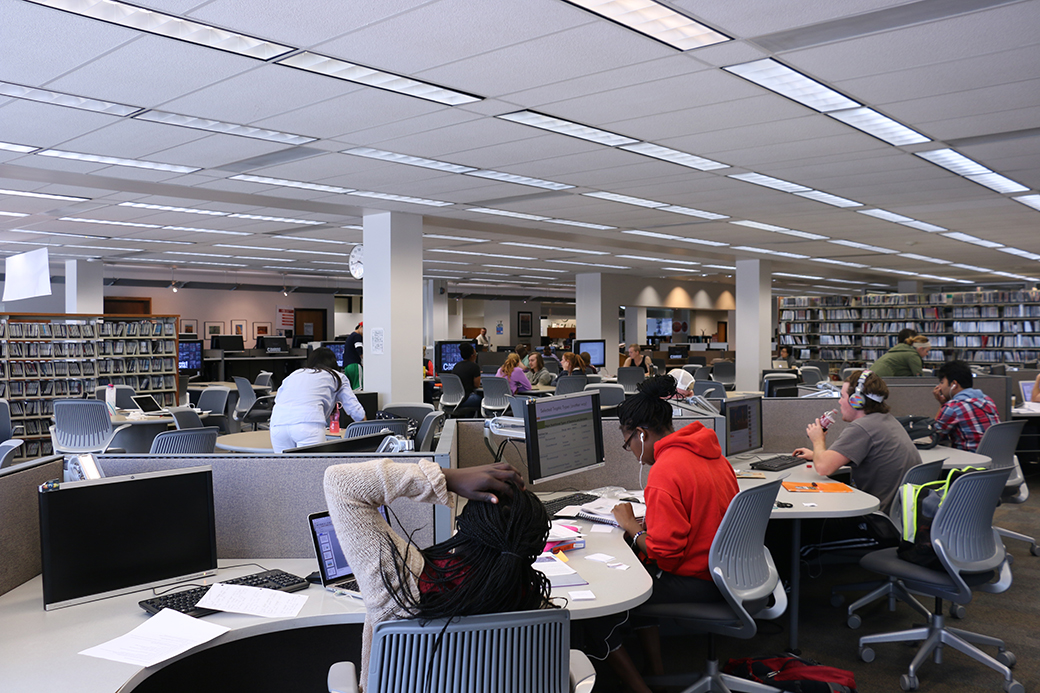
Students prepare for midterms, testing philosophy varies by professor
As the halfway point of the semester nears, many students are preparing for their midterm exams. However, not all professors administer tests the same way.
Brennan Jordan, a science professor, believes tests are more of a teaching tool than a testing tool.
“Midterm exams give the students incentive to review material that they have been working through and they give faculty an opportunity to see what’s the level of students’ comprehension of the material up to this point,” Jordan said. “It also provides more opportunities for students to get graded feedback in multiple exams rather then it all coming all in one or few tests.”
Jordan went from having two midterm exams to having at least three this year. He gives midterm exams in all of his classes, including labs, and likes to give students a review guide.
He believes breaking up a semester helps students learn more.
“By having multiple midterm exams, we are chopping the class up into smaller pieces for the students’ digestion,” Jordan said. “That ultimately means that for any given test there is less material to retain.”
Jordan said that in his experience, he finds that more students favor having a midterm exam so that no single test determines their entire grade.
“If they do bad on one they have a couple more to get their grade back up and improve,” he said. “I think in that regard it serves everyone well.”
However, not all classes are like this. In some of Timothy Schorn’s international studies classes, students are only given a final exam.
“Depending on the course, I have different philosophies on testing,” Schorn said. “In my 100 (level) course, I prefer to give at least three tests, so to define something as a midterm just doesn’t really fit into the schedule. In my 400 level courses, some of those don’t have tests at all,” he said. “I wait to give a single test because a lot of students are getting ready to (go to) law school or graduate school and that all comes down to a final exam and so this is good preparation for them.”
Schorn said this can be a bit overwhelming for students.
“(My tests) are over everything, from day one until the end,” he said. “For some students that is fairly daunting and I let them know up front that there will not be a chapter test or midterm exam. It comes to being able to put together all the pieces at the end of the semester.”
Although exams traditionally aren’t a student’s idea of a good time, there are many that find them to be beneficial.
“Some classes they really suck in, but you need tests,” sophomore Holly Hayden said. “It’s how you know if you’re understanding the material or not.”
Despite their different teaching styles, both professors agree it ultimately depends on the teacher and class he or she is teaching.
For Jordan, the field in which you teach may ultimately be the deciding factor.
“I think in the sciences and mathematics, having multiple midterms is really necessary,” he said. “Maybe in some other classes you can just have a few papers scattered throughout the semester, but in some other fields it’s necessary to demonstrate comprehension of content.
buy cialis generic https://yourcialisrx.com over the counter
”
For Schorn, it may depend on the level that is being taught.
“I think for a 100 or 200 you want to give at least two exams in the course of a semester. For a couple of courses we might want to test more to make sure that students are picking up on the content that is being taught.”
Despite how unnerving midterms can be, there are some simple ways students can prepare and survive their midterms.
“I suggest you go through the book, go through the notes. If a professor gives you any practice sheets, go through those and get plenty of sleep,” Hayden said.

